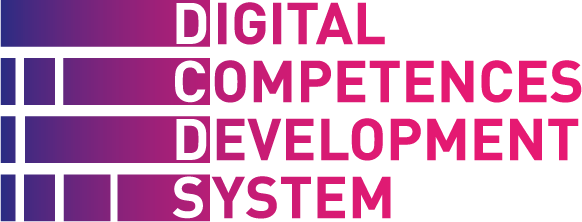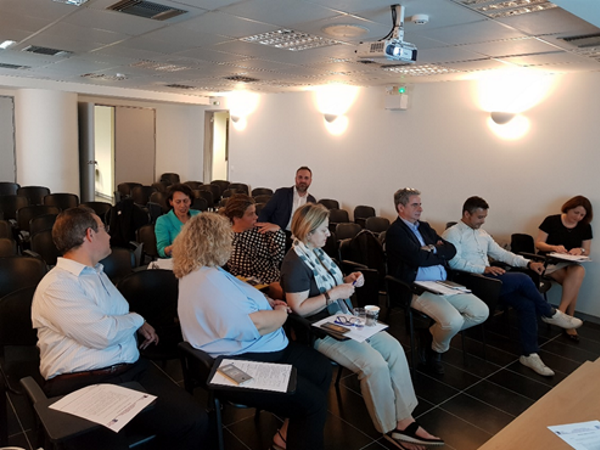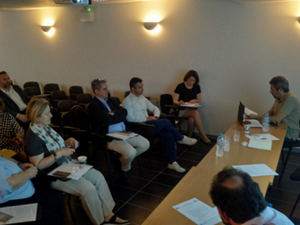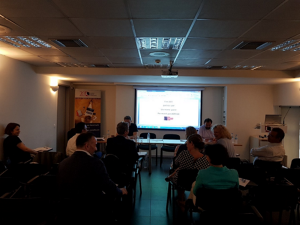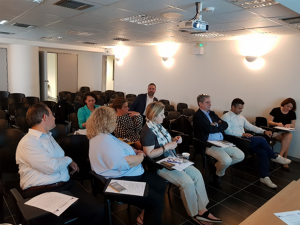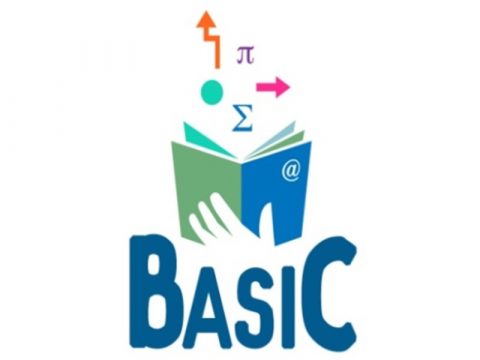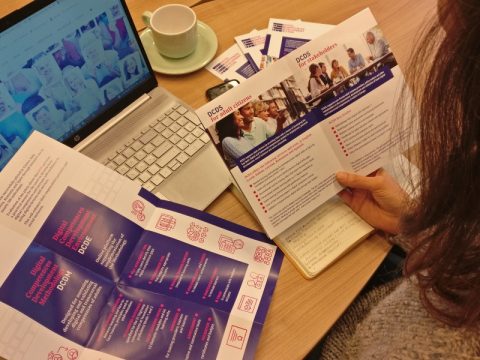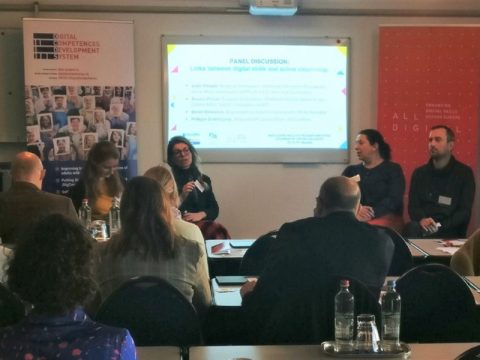A focus group involving ten policy makers (mainly) and training providers took place in Athens, Greece, on May 3, 2018. The focus group took place in the afternoon (17:30 – 19:30) at the Athens’ Premises of the Hellenic Open University, a convenient location near the city centre. Eight of the participants were representatives of governmental bodies (including the Ministry of Employment, the Ministry of Administrative Reform, the Ministry of Digital Policy, Telecommunications and Media, the Ministry of Economy and Development, the National Centre for Social Research, the Hellenic Telecommunications and Post Commission, the General Secretariat of Coordination) and two were stakeholders from the Adult Learning market. Four out of the ten participants were women. The focus group lasted almost two hours and led to fruitful discussions between the participants.
The focus group ran with the support of one facilitator (Achilles Kameas) and two observers (Spiros Borotis and Nick Achilleopoulos) from the Hellenic Open University. The facilitator presented the objectives of DCDS project and the purpose of the focus group. Additionally, he informed the participants about the focus group method and the ground rules. After that, the main discussion session was conducted, lasting approximately 90 minutes; in the following, the most important findings are summarized.
Most of the participants agreed that the basic digital competences are important for the social inclusion of adult citizens, as their existence facilitates their participation to the community and exploitation of digital services. Recent data indicate that more than 65% of NEETs or young people, among those who were following apprenticeship programs, in order to develop their digital competences, found a job. This finding justifies the significance of acquiring digital competences nowadays.
In general, the groups of the population that DCDS should target include people belonging to vulnerable groups (especially those culturally differentiated, e.g. Roma, people with disabilities, (recent and long-term) unemployed, people at risk of poverty, people with chronic disorders, immigrants and migrants, women, single parent families, etc), people aged 45+, unemployed (and especially recently unemployed), etc. An additional group identified includes the people working in high-level positions (e.g. CEOs, traditional media manager, elder academics, artists, judges, public servants, etc) who are ashamed to declare their lack of digital skills. It worth to mention that every attempt to “bridge the digital divide” should not be accomplished once, but should be repeated frequently on a regular basis, as digital skills require continuous updating and practical implementation.
The digital transformation and structural adjustment has severely affected the aforementioned groups, especially NEETs and unemployed, as well as residents of rural areas (e.g. small villages) and islands. Alongside, special emphasis should be given to women. The upgrade of their digital competences and the development of their leadership skills would contribute to their career improvement, would allow them to work remotely, and overall could mitigate the “payments-gap”.
The establishment of a national strategy (including a “set of rules” for training, accreditation, etc) by the Ministry of Digital Policy that would create a common ground is required. In addition, a change in the Greek mindset is required, i.e. to change this latest tension of “computerising” everything and focus more on user (human) – friendly technologies. This priority should be included in every attempt of developing and adopting information system, including the self-assessment tools mentioned earlier. Apart from the “supply” side mentioned, this change in the mindset should also be implemented in the “demand” side, i.e. the users should recognize and adopt digital technologies in their daily work duties, without asking for additional motivations.
In general, some type of accreditation is required, but most probably a “light” one, e.g. badges, and soft certification schemes (e.g. including encrypted blockchain) should be employed. Accreditation could also be facilitated by the use of (free) self-assessment tools, following trainings, that would help citizens identify the skills they have acquired and those that are missing. Certification in general is helpful. In some countries, this is conducted by the state, whereas in other by private or non-profit institutions.
